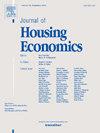住房所有权和公共部门就业:来自中国取消购房限制的证据
IF 2.4
3区 经济学
Q3 ECONOMICS
引用次数: 0
摘要
本文利用2014年中国取消住房购买限制(HPR)的准实验,通过差异中的差异(DID)方法检验住房所有权对公共部门就业的因果影响。结合2012年、2014年中国家庭面板研究(CFPS)和2011年、2013年、2015年中国家庭金融调查(CHFS),我们发现,取消HPR显著降低了47%在公共部门工作的可能性,这种负面影响对房主和租房者都适用。机制分析表明,首先,取消HPR提高了房价,使房主更能抵御可能的失业冲击,从而降低了公共部门的吸引力,这被称为财富缓冲渠道;其次,不断上涨的房价阻碍了租房者在公共部门工作,那里的工人工资较低,未来难以负担更昂贵的房子,这是购房渠道;第三,由于HPR在中国是一项普遍存在的基于户口的歧视性政策,HPR的取消使得本地户口不再是购买住房的必要条件,从而降低了公共部门就业的倾向,即住房资格渠道。此外,研究发现,对于那些为了提高自己在婚姻市场上的竞争力而购买住房的可能性更高的未婚男性来说,取消HPR的影响更大。最后,对年轻员工和有孩子的员工有更大的负面影响。本文章由计算机程序翻译,如有差异,请以英文原文为准。
Homeownership and public sector employment: Evidence from the removal of home purchase restrictions in China
This paper utilizes a quasi-experiment in China that removed home purchase restrictions (HPR) in 2014 to examine the causal effect of homeownership on public sector employment through a difference-in-differences (DID) approach. Combining the 2012, 2014 China Family Panel Studies (CFPS) and the 2011, 2013, 2015 China Household Finance Survey (CHFS), we find that removing the HPR significantly decreases the probability of working in the public sector by 47 %, this negative effect holds for both homeowners and renters. The mechanism analyses show that firstly, removing the HPR increases house prices, which makes homeowners more resistant to possible unemployment shock, and thus reduces the attractiveness of the public sector, which is called as the wealth buffer channel; secondly, the rising house prices discourages renters to work in the public sector, where workers are paid lower wages and struggle to afford a more expensive house in the future, this is the home purchase channel; thirdly, as the HPR in China, is a prevailing Hukou1-based discriminatory policy, the removal of HPR makes local Hukou no longer necessary to qualify for buying a house, and then reduce the propensity of public sector employment, that is the homeownership eligibility channel. In addition, it is found that the impact of removing the HPR is larger for unmarried males who have a higher likelihood of buying a house to improve their competitiveness in the marriage market. Lastly, there are greater negative effects for young workers and employees with children.
求助全文
通过发布文献求助,成功后即可免费获取论文全文。
去求助
来源期刊

Journal of Housing Economics
Multiple-
CiteScore
3.30
自引率
4.20%
发文量
35
期刊介绍:
The Journal of Housing Economics provides a focal point for the publication of economic research related to housing and encourages papers that bring to bear careful analytical technique on important housing-related questions. The journal covers the broad spectrum of topics and approaches that constitute housing economics, including analysis of important public policy issues.
 求助内容:
求助内容: 应助结果提醒方式:
应助结果提醒方式:


